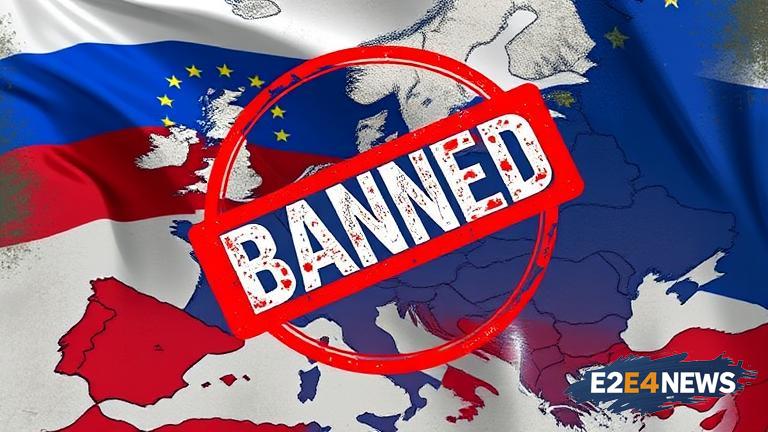A recent report has exposed the European Union’s failure to effectively block banned Russian media sites, allowing them to continue operating and spreading disinformation across the continent. The report, which was published by a leading cybersecurity firm, found that many of the banned sites were still accessible in several EU countries, including Germany, France, and the UK. This is despite the EU’s efforts to impose sanctions on Russian media outlets, which were introduced in response to Russia’s invasion of Ukraine. The sanctions were intended to limit the spread of Russian propaganda and disinformation, but it appears that they have had limited success. The report found that many of the banned sites were using proxy servers and other techniques to evade detection and continue operating. This has raised concerns about the effectiveness of the EU’s sanctions and the ability of Russian media outlets to continue spreading disinformation. The EU has been criticized for its failure to take stronger action against Russian media outlets, which have been accused of spreading false information and propaganda. The report’s findings have sparked calls for the EU to take more robust measures to block banned Russian media sites and prevent the spread of disinformation. The issue is particularly concerning given the current geopolitical climate, with tensions between Russia and the West at an all-time high. The spread of disinformation and propaganda can have serious consequences, including the manipulation of public opinion and the undermining of democratic institutions. The EU has a responsibility to protect its citizens from the spread of false information and to take action against those who seek to manipulate and deceive. The report’s findings are a wake-up call for the EU and highlight the need for more effective measures to be taken to block banned Russian media sites. The EU must take a stronger stance against Russian media outlets and work to prevent the spread of disinformation. This can be achieved through a combination of technical measures, such as blocking proxy servers, and legislative measures, such as introducing stricter regulations on media outlets. The EU must also work to increase awareness and education about the dangers of disinformation and propaganda, and to promote fact-based reporting and journalism. By taking these steps, the EU can help to protect its citizens from the spread of false information and promote a more informed and engaged public. The report’s findings are a reminder that the EU’s efforts to combat disinformation and propaganda are ongoing, and that more work needs to be done to address this complex and evolving issue. The EU must continue to work to stay ahead of those who seek to manipulate and deceive, and to promote a free and independent press. The spread of disinformation and propaganda is a global issue, and one that requires a coordinated and sustained response. The EU’s failure to block banned Russian media sites is a concern not just for Europe, but for the world at large. The report’s findings highlight the need for international cooperation and collaboration to address this issue, and for the development of new strategies and technologies to combat the spread of disinformation. The EU must work with other countries and organizations to share best practices and to develop a comprehensive approach to addressing this issue. By working together, we can help to prevent the spread of disinformation and promote a more informed and engaged public. The report’s findings are a call to action, and a reminder that the EU’s efforts to combat disinformation and propaganda are crucial to the health and stability of our democracies.
